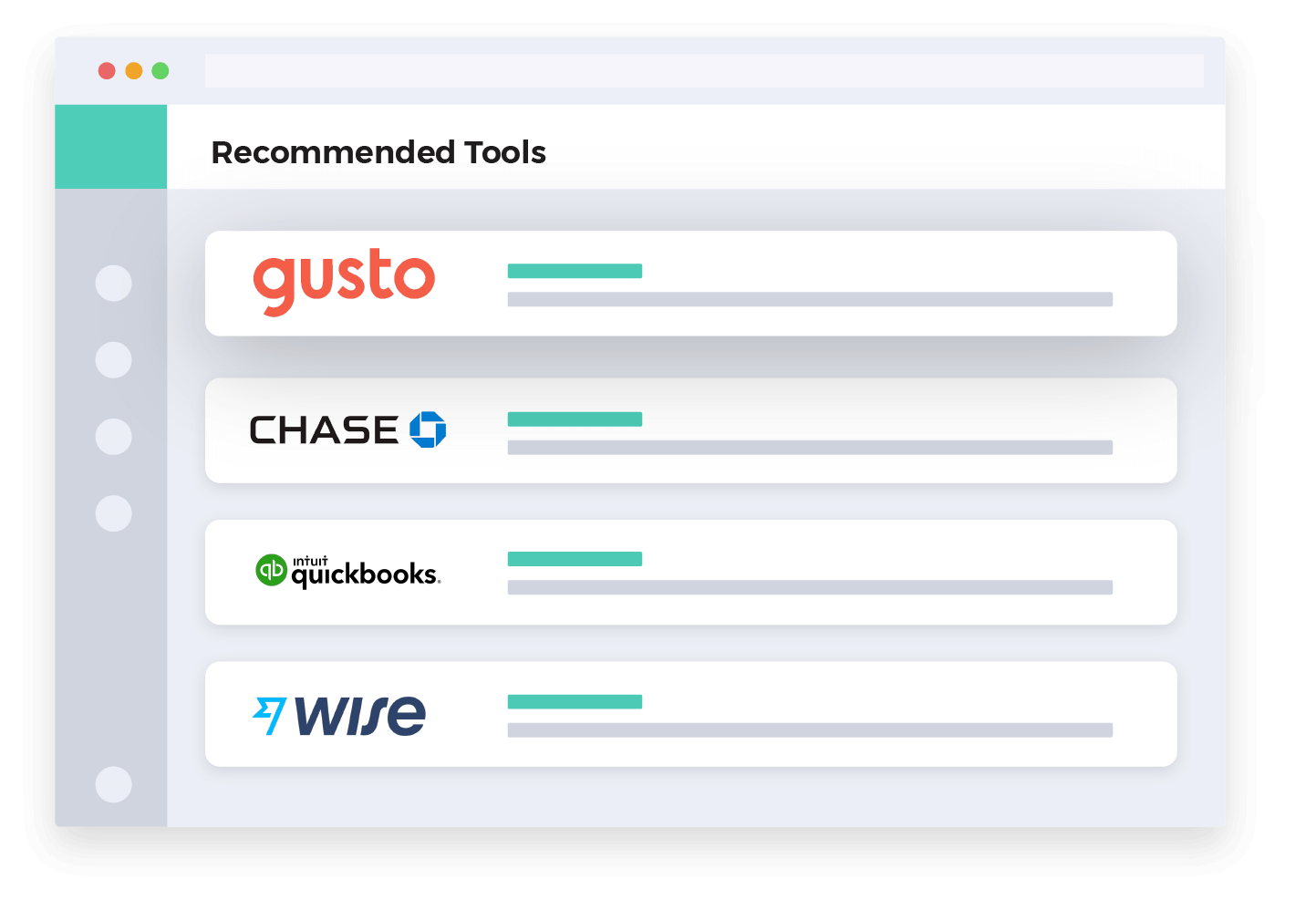- Accounting Topic
- Financial Ratios Topic
CPA Small Business Accounting Tips, United States
Disclaimer: This information is for educational purposes only and not to be used as tax or legal advice. Tax law and accounting protocol are constantly changing. Seek an attorney and qualified accountant.
CPA Small Business Accounting Tips, United States
The focus of starting a business in the United States should be quickly finding customers for your goods and services. While liability and intellectual property protection are very important, aspiring business owners get caught up in the details of entity type, operation, and compliance requirements. Moreover, entrepreneurs stress over details and worry about someone copying an idea that few care about and even fewer have the capacity to implement. Thus, the optimal way to conduct business is to strike a balance between cost effectiveness and action by consulting insurance and legal professionals.
Communicating with Your Advisors
Seek people who have significant experience in your business area. Interview them and ask for specific examples of their experience. Prior to talking with others, maximize their time by first educating yourself on the basics. Document a business plan, including goals and exactly how to accomplish them. By planning and researching questions prior to meeting with advisors, you will be able to accomplish more with them.
Legal Structure of a Business
If there are two or more owners in a business, it is likely worth the associated cost to form a separate legal entity. Without a structure in place, two or more people in business together may be classified as a general partnership. If this is the case, all partners would share unlimited personal liability for the business. Common business structures that limit liability are corporations, limited liability partnerships, and limited liability companies. These structures provide the legal framework to set ownership and rights on paper. Having only one owner allows more flexibility in the entity choice. One owner may also decide to delay the entity formation and act as a sole proprietor until outside investors are willing to invest, a product is profitable, or employees are hired. Sole proprietors should carefully analyze the costs and benefits in pursuing a separate legal entity.
Having employees creates many potential liabilities for businesses. Employees perform inherently risky things for employers: climb ladders, operate machinery, and perform other tasks. Insurance may cover things like injury, but policy maximums can quickly be reached and the owner held personally liable. Legal structures can help limit this risk and should be strongly considered when there are employees or even independent contractors.
Limiting liability with a corporate or limited liability structure is ideal, but costly. Many California companies in the tech space register a corporation in Delaware and operate in California. In this example, the corporation will generally need to pay fees to Delaware, California, as well as file separate tax returns and hire an accountant. Delaware is a popular state to incorporate in because of the court system and laws. Using this legal structure may make it easier to attract investors and possibly sell a company.
The necessity for outside investment is a very important factor when deciding on a business entity. If the business is seeking outside investment, ask other businesses and investors in the industry which structures are preferable. It is also valuable to seek legal counsel from firms that are experienced in your particular business type.
A lack of legal structure could exclude a business from certain contracts. Large corporations may have a policy of only working with other legal structures (not individuals or sole proprietors). Superficially speaking, a corporation or limited liability company may give a business the image of being legitimate and professional, as outsiders may perceive an “Inc” (corporation) or “LLC” (limited liability company) as a big operation.
Personal Liability and Business
Legal structures such as corporations or those that limit liability may not protect against all lawsuits. Often, the entity will not protect individuals against professional liability. For example, if a Certified Public Accountant (CPA) operates a corporation that files fraudulent tax returns, the CPA may still be personally liable in a lawsuit. Personal liability can also extend to copyrights. If an artist copies other musicians while operating as a corporation, the artist can still be individually liable for copyright infringement.
Thus, it is imperative to know that limiting personal liability is a combination of careful operation, business structure, and insurance. The first line of defense against liability for a company should be insurance. Insurers can insure nearly everything from professional liability to earthquakes.Generally, large businesses are structured so that insurance provides initial legal protection against lawsuits and defaults. Other underlying business units and assets may be further added as wholly owned limited liability companies or corporations by the larger business structure. For example, should one hotel structured as an LLC collapse; the larger corporate hotel chain owner would be protected to some degree. Single owners, however, need to be practical in the entity costs, especially if they do not have any personal assets at risk.
An attorney specializing in this area should complete business entity documents and filings. A qualified tax accountant can discuss the tax implications of the entity structure as it relates to your individual tax situation and business entity. The most effective results are achieved when attorneys, accountants, and tax accountants can make informed decisions together. Setup a meeting or conference call with both parties so everyone understands the facts and circumstances and can make the best decision.
- Entity choice depends on many factors such as: number of business owners, business type, necessity for outside investment, customer perception, tax liability, individual assets, business goals, government regulation, and employees
- Limiting liability is very important, but has several associated costs and benefits
Tax
The tax rules surrounding business structure may impact the owners and the ability to attract investors and raise capital. Generally structures are either taxed at the corporate level such as a C-corporation or at the owner level, such as a limited liability company. Each structure has very specific tax rules, costs, and benefits for the investors and owners. Seek professional guidance to determine the structure best suited for the needs of the business.
Accounting for a Small Business
Accounting for small businesses is necessary for tax compliance and to monitor results. Keeping current records allows for better planning and less reactionary measures. Good records also allow for year- end tax planning. Often, businesses will use software to bill customers and pay vendors. Accounting software is a great recordkeeping tool, but still requires accounting knowledge if it is expected to generate reasonably accurate records. Accounting must always be viewed in the context of the costs and benefits of the system. In other words, while perfect records and software are ideal, they are not always time or cost effective.
Maintaining the proper sources for transactions is the first step in building financial records. When cash moves, keep a record with a receipt and explanation of the transaction. Keep receipts in a simple, chronological order in a box or whatever is convenient. It will be fine to use bank records later, but in the case of an audit, the original records are very important. Taking notes on receipts as to the business purpose will help the accountant classify the transaction. When cash is received, make notes as to why and whom it is received from.
Use a separate bank account and limit personal transactions. Comingling (combining) of business funds creates unnecessary accounting work. Having a separate business bank account provides legitimacy in audits and keeps transaction volume down. Save time by limiting bank accounts and transfers. Withdraw funds infrequently using relatively large and even amounts. This will make the transactions obvious for future categorization. If possible, avoid tiny purchases to reduce transactions. When paying for items, use credit and debit cards to make accounting faster and improve record keeping. Use checks only when necessary and avoid using cash. Though small business accounting can be done after the fact, current recordkeeping makes tax planning and decision making possible.
- Keep all receipts and document the sources of cash
- Do not use business accounts for personal expenditures
- Limit bank accounts and keep transaction volume low: withdraw infrequent and even amounts, limit bank transfers, and limit small purchases
- Use debit and credit cards whenever possible
Tax Implications
Small business owners are taxed differently than employees. More taxes are shifted to the owner of a business and are not automatically withheld. Current record keeping is a necessity to effectively make proper tax payments and take advantage of potential tax benefits. Business ownership requires significant discipline to save for quarterly tax payments. There are also additional time and monetary costs to hire qualified professionals to help with the process.
Be aware of all state and local business taxes. Even sole proprietors and flow-through entities may be subject to local registration and property taxes. If operating as a corporate or limited liability structure, there are likely state fees. Having employees creates several different taxes and it is best to use a payroll service. Such taxes and fees can be costly and be due surprisingly early in the year. Maintain a tax calendar for all of the different payment due dates, as local and state tax penalties can be severe.
- Business ownership means more tax compliance responsibility
- Understand state and local tax requirements, due dates, and record them on a calendar
- Use professionals
Employees and Independent Contractors
People who work for you may be classified as either employees or independent contractors. Generally, an employee is someone who works for you under your direct guidance and supervision. Contractors are treated as independent of the business, control the manner in which work is completed, and typically work on a project basis. Business owners must pay state and federal taxes on behalf of all employees. There are also requirements to pay for various forms of insurance, such as unemployment insurance. Therefore, small businesses have a tendency to classify anyone who works for them as an independent contractor. It’s imperative to use extreme caution when deciding between employees and independent contractors and utilize a labor attorney to help with the distinction. This is because there are strict laws around the classification and a contractor could be reclassified as an employee, incurring significant fines and back taxes to the business owner.
Summary
Business owners should be free to focus on growing a business in terms of value and profitability. They also have significantly more tax reporting responsibility and must be diligent to stay current. Thus, utilizing advisors to get the best legal and accounting assistance will certainly contribute to its success, while also weighing all of the costs and benefits. Consult with professional advisors before the year-end and maintain current records.
AccountingPlay Apps
Learn Accounting Faster and Easier
Learn financial accounting, debits & credits, and business tax easier with flashcards, mobile apps, and games. Learn accounting anytime and anywhere. AccountingPlay will help you learn in a fast and fun way. Available on iOS and Android


Premium Courses
One Time Payment. Lifetime Access.
Learn more comprehensive about debits and credits, financial accounting, excel fundamentals, business tax prep & plan, CPA tax prep, and how to start and grow your business right. Get access to all of our books, spreadsheets, academic papers, cheat sheet, audio vault, videos, and more.
Recommended Tools
One of your top priorities as a small business owner is keeping a close eye on the money you bring in and pay out, which is why it’s critical to have the right accounting software. You need a program that helps you accomplish your daily accounting tasks. Here are our best picks for tools we recommend and use


